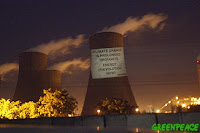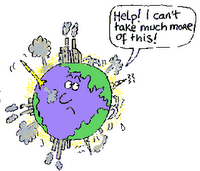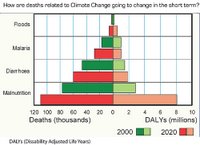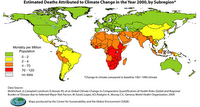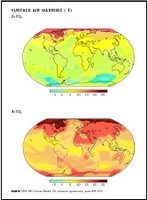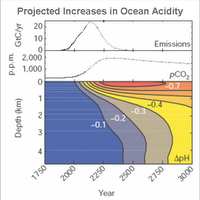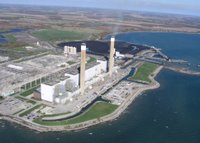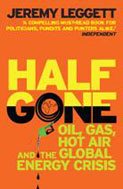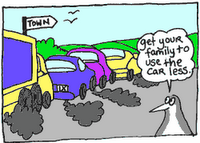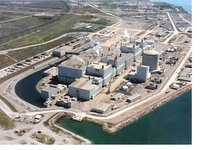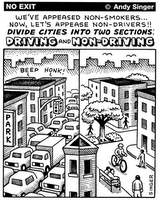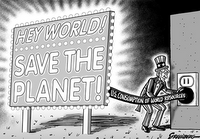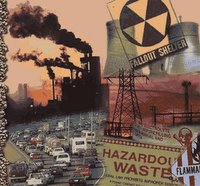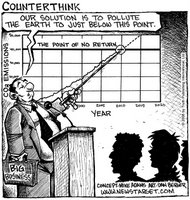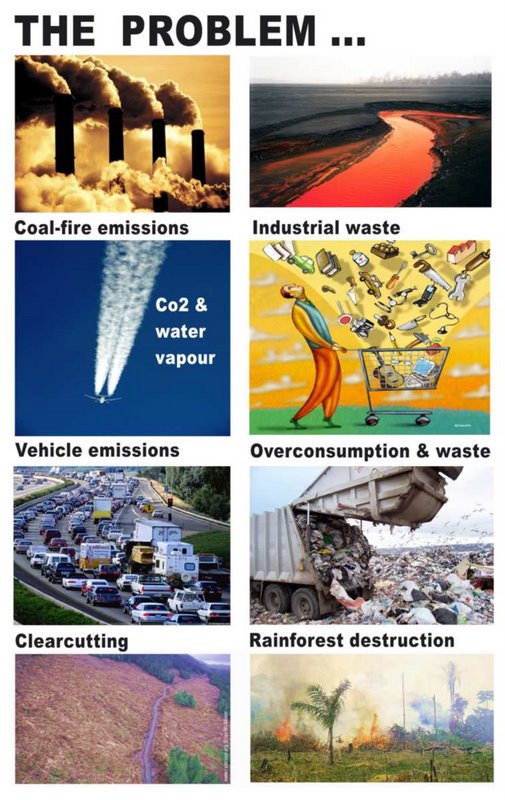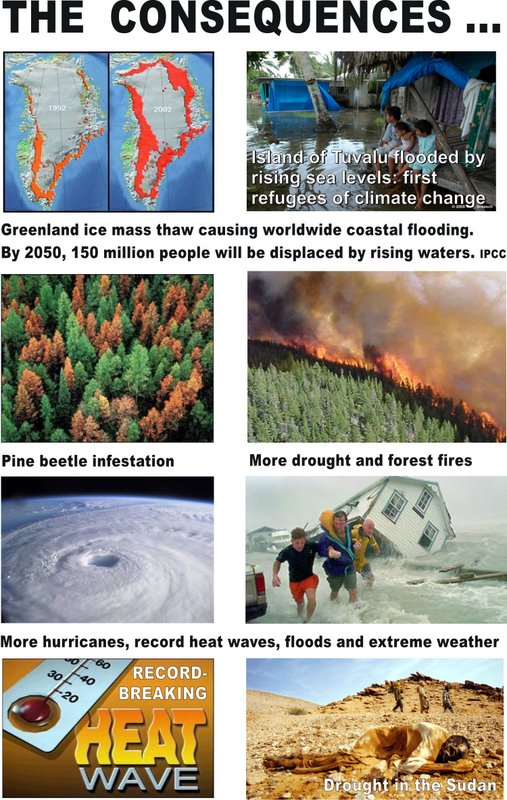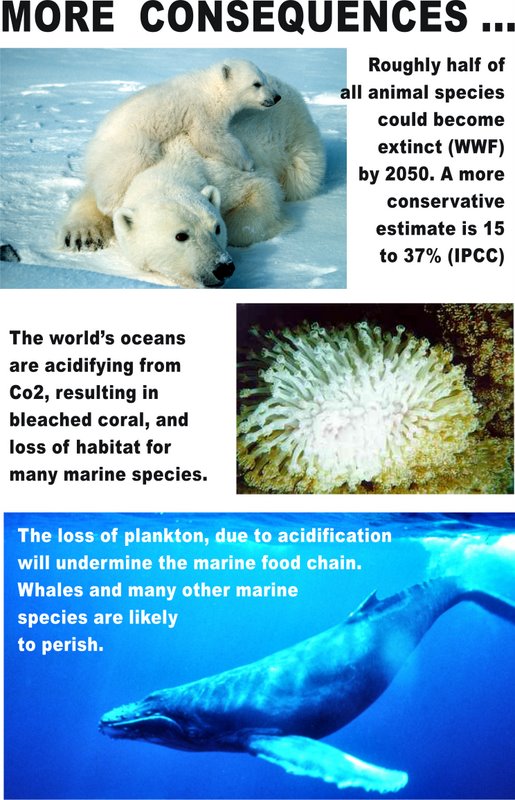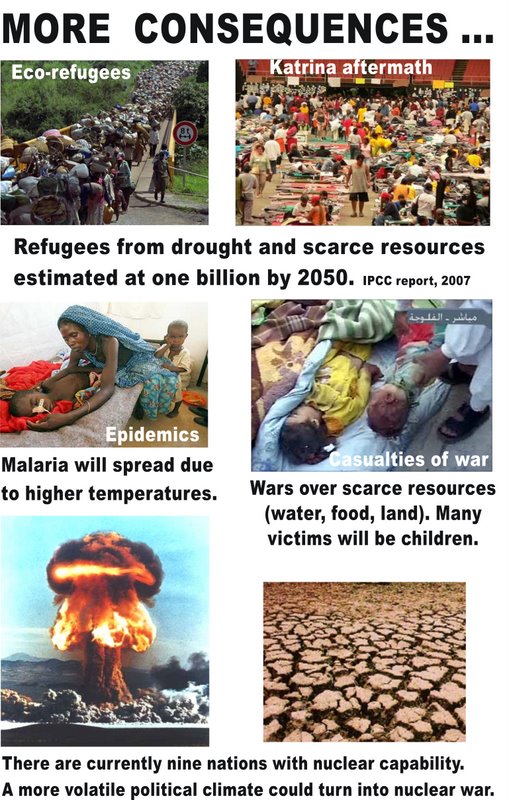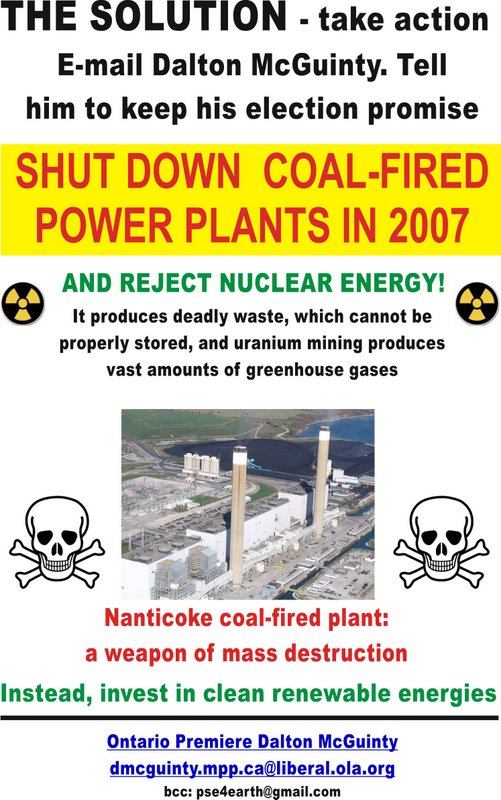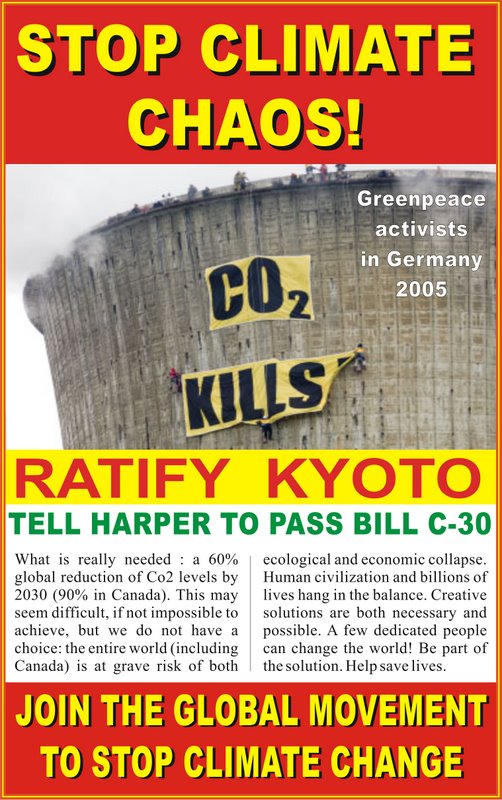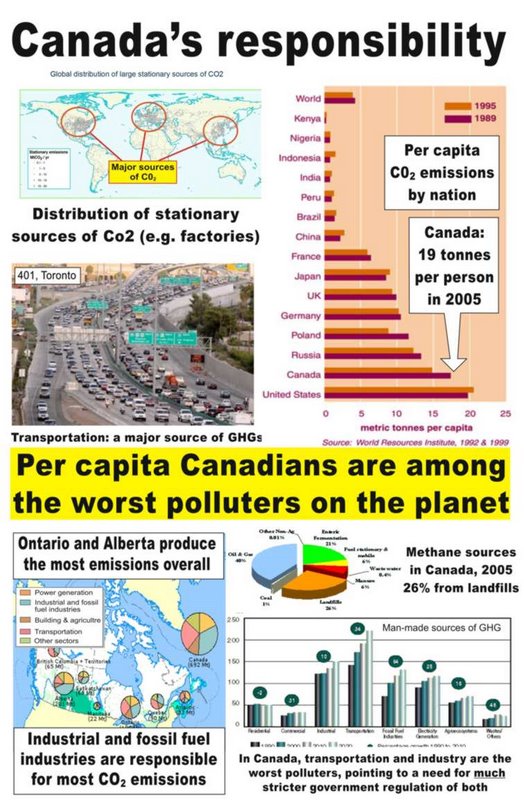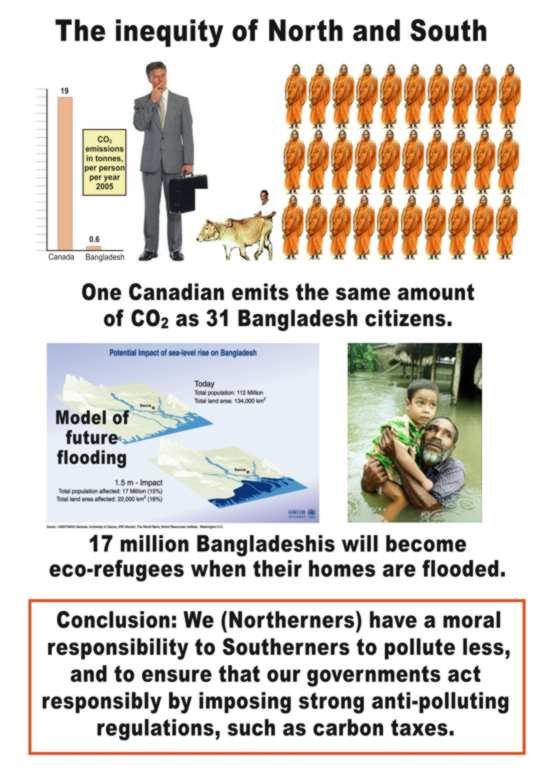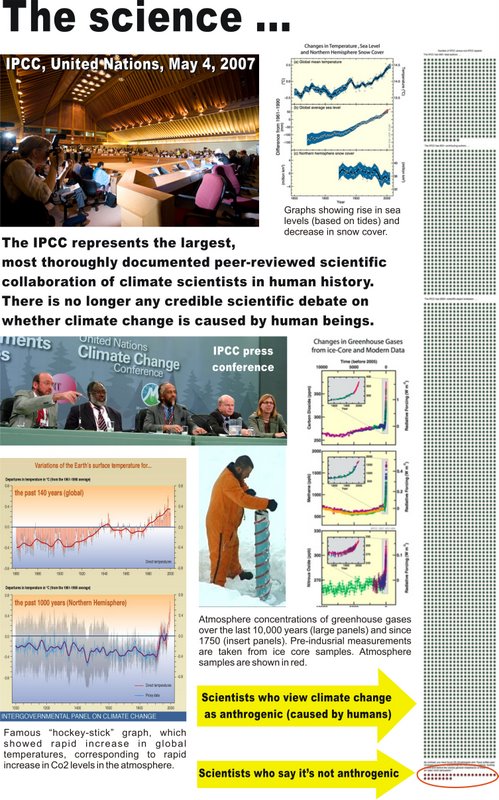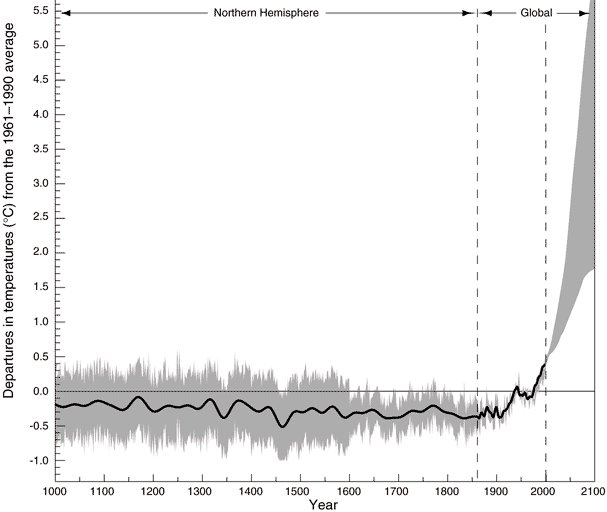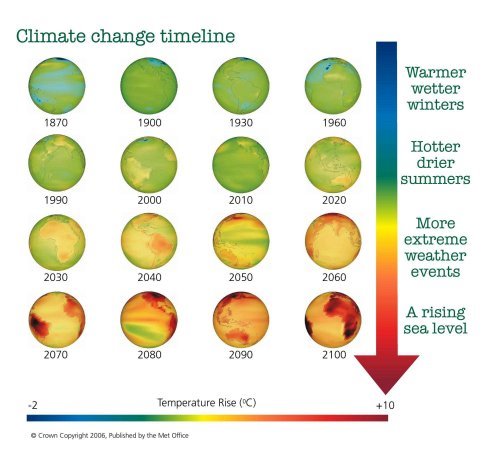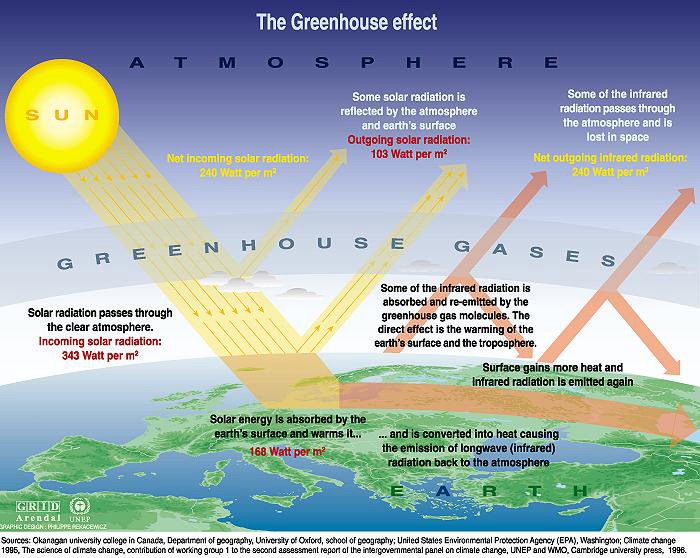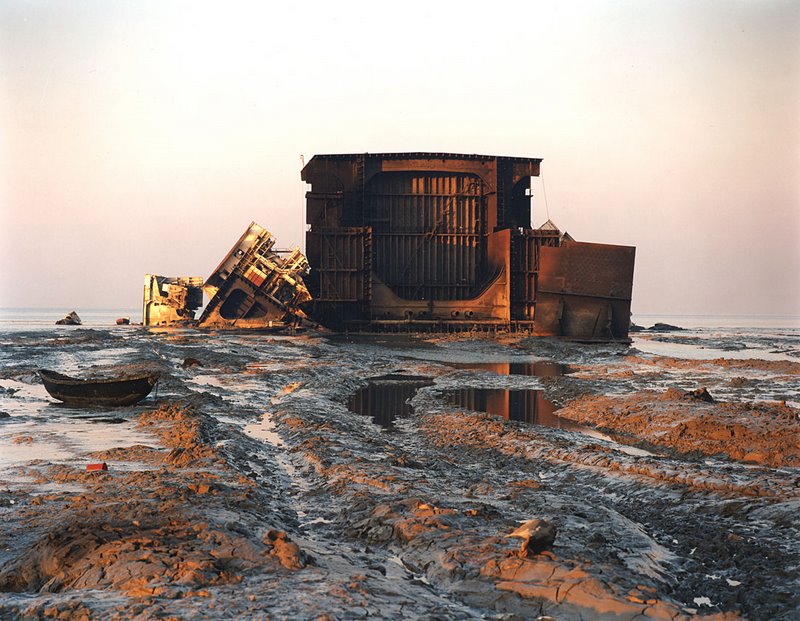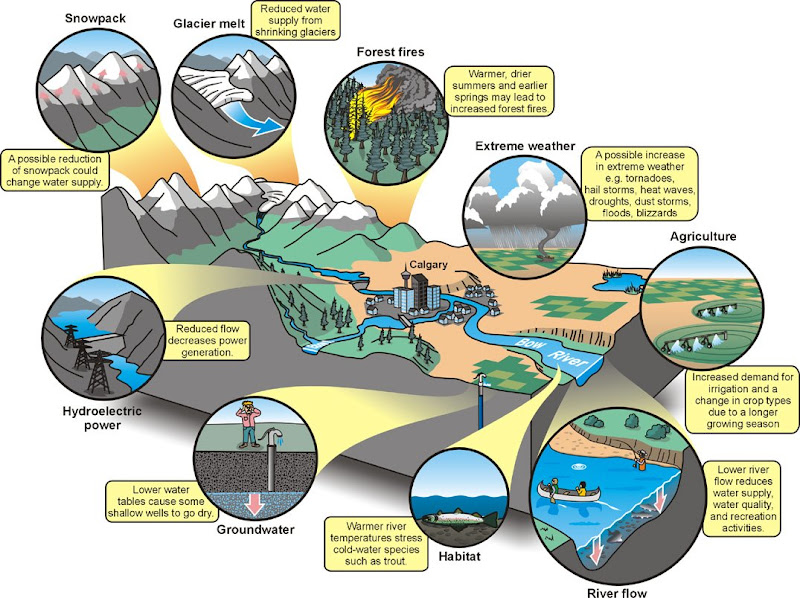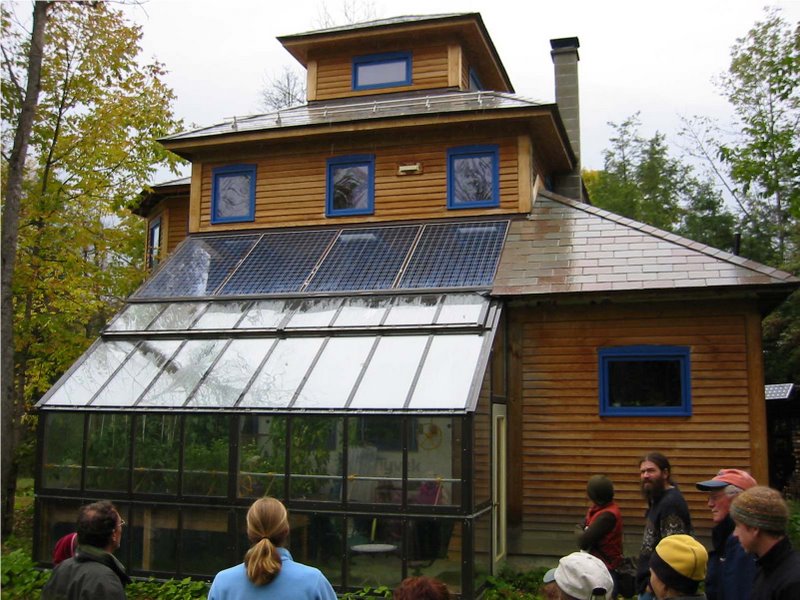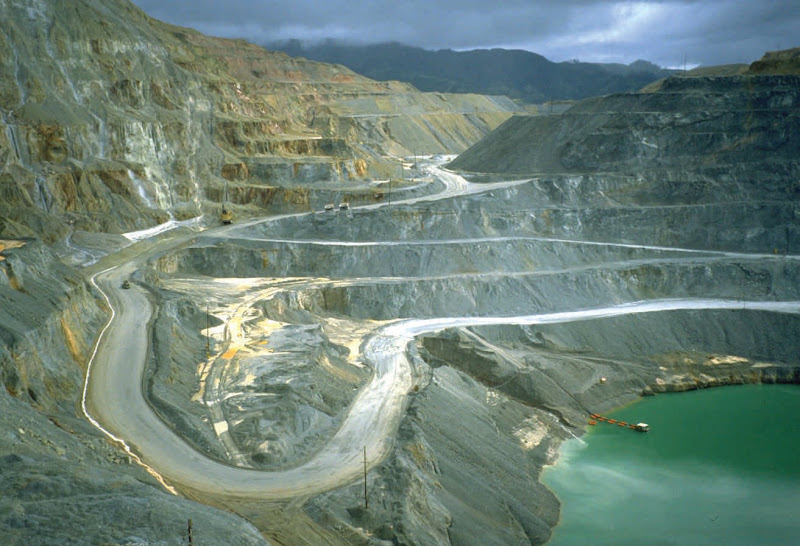Wednesday, June 9, 2010
Bio-char skepticism
There is a strong statement against biochar at this site (below). Many objections are raised in the article. It's the first time I had seen such a statement, so I'm sharing it. Biochar seems to be a technological solution - a form of geo-engineering - with possible unintended consequences and costs. It has gained in popularity in the
last year and is being widely advanced in climate analyst and scientific circles.
http://climateandcapitalism.com/
The biochar ideas raises the ethical questions associated with other localized technological solutions: nuclear energy, sulphur particles in the atmosphere, iron filings in the seas, carbon sequestration. Not all these technologies are alike in all respects, but they do share some commonalities. Before I launch into my crtitique, I should add that I do not have the final answers. This is a provisional set of statements. I raised these points for discussion only, because it seems important to do so, and I welcome alternative points of view.
Roughly speaking, these localized technological solutions share these problematic characteristics, which need to be considered prior to their implementation:
1) They have social and environmental costs attached to them, which from a deontological ethical perspective, negates their value. From this perspective it is morally wrong to make x pay the cost for the benefit of y, if x and y are equals. All human beings are equals in this view.
In other words, the rights of individuals and minorities must be upheld and solutions to social or environmental problems must take into account those individual or local community rights. Solutions must be "universalizable." From a deontological perspective, war would not be justifiable, and nor would any development project which imposed burdens on local populations for the sake of the economic prosperity of the larger society.
However, from a utilitarian perspective, which allows for minority populations or individuals to suffer for the good of the greater happiness, such technologies - if they worked - would be considered ethically acceptable. It is this ethic which is being used (implicitly, not explicitly) right now.
The utilitarian perspective will seem practically necessary to many, given how widespread human self-interest and faith in technology appears to be, but it is still morally wrong (in my opinion) for the reasons stated above, and given limited time and resources, climate change mitigation requires the choice of one or the other perspective and set of commitments associated with it.
As I hope to demonstrate in these few paragraphs, the deontological perspective can be (roughly) associated with a no-growth economy and investment in renewables and other intermediate technologies, and the utilitarian perspective can be associated with advocacy for high-tech solutions which have localized costs and which are often used in connection with justifying the current model of unlimited economic growth.
2) There are local consequences that no one can anticipate fully, but advocates for these technologies are advancing them nonetheless as mitigation techniques for climate change. Their use in the world is being advanced as an experiment and local populations and ecoystems are part of that experiment, which raises ethical objections.
The regulatory framework and environmental assessments - if they are applied - be described as utiliarian in their bias, using a risk management methodology. The risks are borne by local populations, often without their consent, and also by future generations, who cannot give their consent.
3) Advancing these technological solutions is tantamount to accepting the unsustainable status quo of unlimited economic growth. The "magic buckshot" ethic advanced by many climate policy analysts - which is a mix of existing and experimental technologies - ignores the fact that funds spent on experimental technologies could be better spent on renewables.
The latter (renewables) are associated with energy conservation and widespread behavioral change and are therefore not considered viable of their own, within the context of the economic growth paradigm.
4) There are high financial costs as well attached to them, and in a world of limited funding for climate change mitigation, it is arguable that such funding could be better spent on proven technologies (renewables) where the social and environmental costs are relatively minor. This is especially the case with nuclear energy, but the argument may be applicable to biochar as well, depending on the costs
associated with implementing it on a widespread scale.
From this perspective, it is an either/or scenario, financially: if funds and energies are spent on experimental solutions which potentially would allow the economic growth regime to continue, they take away from relatively low-cost intermediate technology solutions which require greater energy efficiency and behavioral change (a low growth or no growth economy).
The perspective in general use among analysts and polticians right now is that we must try all possible options and see which one works, or which combination of them work, and commit to that. But in the case of nuclear energy and renewables, limited funding spent on one is necessarily not spent on the other. This could also be the case with biochar, depending on how much its implementation on a widespread
scale might cost.
It should also be added that the least expensive option available for mitigating climate change on a large scale is the elimination of factory farms and a severe reduction in meat consumption in industrialized nations which rely on factory farms for food. According to a 2007 U.N. report, 18% of global greenhouse gases from industrial meat production.
last year and is being widely advanced in climate analyst and scientific circles.
http://climateandcapitalism.com/
The biochar ideas raises the ethical questions associated with other localized technological solutions: nuclear energy, sulphur particles in the atmosphere, iron filings in the seas, carbon sequestration. Not all these technologies are alike in all respects, but they do share some commonalities. Before I launch into my crtitique, I should add that I do not have the final answers. This is a provisional set of statements. I raised these points for discussion only, because it seems important to do so, and I welcome alternative points of view.
Roughly speaking, these localized technological solutions share these problematic characteristics, which need to be considered prior to their implementation:
1) They have social and environmental costs attached to them, which from a deontological ethical perspective, negates their value. From this perspective it is morally wrong to make x pay the cost for the benefit of y, if x and y are equals. All human beings are equals in this view.
In other words, the rights of individuals and minorities must be upheld and solutions to social or environmental problems must take into account those individual or local community rights. Solutions must be "universalizable." From a deontological perspective, war would not be justifiable, and nor would any development project which imposed burdens on local populations for the sake of the economic prosperity of the larger society.
However, from a utilitarian perspective, which allows for minority populations or individuals to suffer for the good of the greater happiness, such technologies - if they worked - would be considered ethically acceptable. It is this ethic which is being used (implicitly, not explicitly) right now.
The utilitarian perspective will seem practically necessary to many, given how widespread human self-interest and faith in technology appears to be, but it is still morally wrong (in my opinion) for the reasons stated above, and given limited time and resources, climate change mitigation requires the choice of one or the other perspective and set of commitments associated with it.
As I hope to demonstrate in these few paragraphs, the deontological perspective can be (roughly) associated with a no-growth economy and investment in renewables and other intermediate technologies, and the utilitarian perspective can be associated with advocacy for high-tech solutions which have localized costs and which are often used in connection with justifying the current model of unlimited economic growth.
2) There are local consequences that no one can anticipate fully, but advocates for these technologies are advancing them nonetheless as mitigation techniques for climate change. Their use in the world is being advanced as an experiment and local populations and ecoystems are part of that experiment, which raises ethical objections.
The regulatory framework and environmental assessments - if they are applied - be described as utiliarian in their bias, using a risk management methodology. The risks are borne by local populations, often without their consent, and also by future generations, who cannot give their consent.
3) Advancing these technological solutions is tantamount to accepting the unsustainable status quo of unlimited economic growth. The "magic buckshot" ethic advanced by many climate policy analysts - which is a mix of existing and experimental technologies - ignores the fact that funds spent on experimental technologies could be better spent on renewables.
The latter (renewables) are associated with energy conservation and widespread behavioral change and are therefore not considered viable of their own, within the context of the economic growth paradigm.
4) There are high financial costs as well attached to them, and in a world of limited funding for climate change mitigation, it is arguable that such funding could be better spent on proven technologies (renewables) where the social and environmental costs are relatively minor. This is especially the case with nuclear energy, but the argument may be applicable to biochar as well, depending on the costs
associated with implementing it on a widespread scale.
From this perspective, it is an either/or scenario, financially: if funds and energies are spent on experimental solutions which potentially would allow the economic growth regime to continue, they take away from relatively low-cost intermediate technology solutions which require greater energy efficiency and behavioral change (a low growth or no growth economy).
The perspective in general use among analysts and polticians right now is that we must try all possible options and see which one works, or which combination of them work, and commit to that. But in the case of nuclear energy and renewables, limited funding spent on one is necessarily not spent on the other. This could also be the case with biochar, depending on how much its implementation on a widespread
scale might cost.
It should also be added that the least expensive option available for mitigating climate change on a large scale is the elimination of factory farms and a severe reduction in meat consumption in industrialized nations which rely on factory farms for food. According to a 2007 U.N. report, 18% of global greenhouse gases from industrial meat production.
Saturday, June 5, 2010
Lecture for G8/G20 teach-in on environmental justice
Lecture for the G8/G20 teach-in on environmental justice
___________
Reflections on local community struggles for climate justice in the face of hazardous hi-tech technology
My contribution to this discussion is inspired in part by my experiences working with activists who came here from other countries - Mexico, Papua New Guinea, Chile, and Australia - to oppose gold mining on their lands, and in part by the experience of the residents of the San Joaquin Valley, one of the poorer areas of California, and where a lot of industrial projects, oil extraction and industrial waste is located, and where residents have organized to oppose these things.
I will begin by providing a simple but important thought: "A healthy environment is a human right." This idea was ratified in a precedent-setting court case in Colombia in 1991, (Fundepúblico v. Mayor of Bugalagrande). The plaintiffs sought to prevent actual and imminent damage as a result of an asphalt plant's operations in their town. The Constitutional Court sided with them saying: "Everyone has the right to enjoy and live in a healthy environment. This should be regarded as a fundamental human right, which is a prerequisite and basis for the exercise of other human, economic and political rights. It should be recognized that a healthy environment is a sine qua non condition for life itself and that no right could be exercised in a deeply altered environment."
As we have heard from Simia and Judy, climate change is connected to many different struggles for justice around the globe. Our presentations are intended to convey the idea that concern for climate change should not be thought of abstractly as something that could happen in some other time and place, but is happening as we speak, and it is not the "Earth" or "the planet" that should concern us so much as people who are already suffering from environmental damage caused by unsustainable industrial development.
As Oren Lyons of the turtle clan of the Seneca Nation of the Iroquois Confederacy has said, "The Earth has all the time in the world; we don't. "Part of this G8 protest will be an expression of solidarity with rural and indigenous peoples already fighting climate injustice, in relation to the tar sands, Guatemala, and other regions of the world. Many of the communities already live (and have lived for aeons) in a truly sustainable way, growing their food and living within the means provided by the local environment. They should serve as an example to us of how to live, but instead our civilization is destroying their livlihood, in countless examples, largely through extraction industries. An example that comes to mind is oil spills in Nigeria, which have been as horrible as the recent BP spill, but have not received the same degree of media attention because they occurred far from the media's scope of concern.
Most of you have heard Martin Luther King Jr's words, "Injustice anywhere is a threat to justice everywhere." Another way of saying this is that the injustice suffered by an individual or isolated community should matter to us as much as injustices which affect great numbers or which have a higher profile. I will give you one example: in Papua New Guinea, the wealthy gold mining company Barrick Gold is dumping toxic mine tailings into the local river, poisoning their water supply, while Barrick guards murder local citizens and burn down their houses. That fact that they are on the other side of the world should not prevent us from acting in solidarity with them, especially since Canada allows companies like Barrick Gold to operate with impunity.
The damage caused by extraction industries is a clear case of environmental injustice, but what about a situation where there is said to be some environmental benefit that requires putting local populations at risk? As the climate crisis worsens we will hear more and more about cases where local populations protest the implementation of a supposedly beneficial technology. I am not talking about middle-class people in Canada protesting wind turbines because it obstructs their view, but rather cases such as the Western Shoshone in Nevada or the Diagatas in Chile opposing uranium mining on their lands, or the displacement of local peoples and destruction of biodiverse ecosystems to produce biofuels or eucalyptus plantations, listed as carbon sinks in carbon-trading schemes.
Throughout history we always find that terrible things are done in the name of some greater good. The history of religion provides many of instances of this, and in the same way capitalism has been described as a kind of religion which sacrifices millions of people, and billions of animals for its particular vision of a higher good. Its high priests, the economists and policy analysts, are now endorsing a "magic buckshot" solution to climate change, which preserves the existing unsustainable system and sacrifices local populations to it. The problem with the magic buckshot idea is that it assumes unlimited funding. But as opponents to nuclear energy point out, the public funds used to finance it could better be used to pay for renewables and energy conservation projects. In practice, hi-tech solutions are being given precedence, in industrialized nations, in order to prop up the existing deeply flawed system.
Countries around the globe are spending billions of their citizen’s money to carbon sequestration, while ignoring critical knowledge gaps and their potential implications. Emily Rochon of Greenpeace notes that “The future of the planet is being gambled on a technological solution that could turn out to be an end of the pipe dream. Governments need to invest in proven solutions like wind, solar and the smarter use of power.” Scientific research says that if we want to avoid catastrophic climate change, global greenhouse gas emissions must peak by 2015 and fall dramatically thereafter. That leaves about six years to shift energy systems to a low emissions pathway.
The centralized technologies that many of the G8 leaders endorse as solutions for climate change will take longer that six years to fully implement. They include nuclear energy requiring uranium mining, which pollutes surface air and water with radioactive mine waste, sometimes mined near aboriginal communities, causing health problems for them (at the end of the uranium life cycle a favourite dumping ground for the waste is First Nations lands); carbon geologic sequestration, a relatively new technology, places local populations and ecosystems at risk of poisoning from sequestered carbon gas leaking to the surface and into ground water; and geo-engineering schemes - one of which is to cool the atmosphere by injecting sulphur particles into it, which risks burning away part of the ozone layer - are being promoted without full consideration of all their consequences. Employing a utilitarian ethic, they are suggesting that the risks are acceptable. This is usually because those at most risk are abstract numbers to them, not living breathing individuals, whose lives matter.
According to David Orr in his book Ecological Literacy, “advocates of technological sustainability tend to believe that every problem has either a technological answer or a market solution ... [resting on] the belief that humans should be rich and in control of the forces of nature … [this belief maintains that] humans as economic maximizers are incapable of the discipline implied by limits even though they are somehow capable of the wisdom and good judgment necessary to manage all the of the earth’s resources in perpetuity. This deeply pessimistic view of human potentials assumes that we cannot control our appetites, act for the common good, or wisely direct our collective energies … [they also believe that] economic growth is essential … but growth implies an eventual impossibility in a finite system … If sustainability is a top-down process [controlled by economists, scientists and policy experts] then an active, ecologically competent citizenry is irrelevant … ecological politics is reduced to “managerial strategies.” In contrast to technological sustainability is more decentralized ecological sustainability, restoring civic involvement, borrowing from traditional knowledge, and viewing natures as a model for human designers to emulate.
A basic principle being expressed in this presentation is that everyone counts, no matter how far away, however marginalized economically, racially, culturally or otherwise, and an injustice to one is an injustice to all. And it is not only human beings who are victims of capitalism, but also animals - by the billions - and their fate is intimately tied to our own, on many levels, including the danger posed to all land-based life forms by the acidification of the oceans, and the greenhouse gases caused by factory farming. An analysis of environmental injustice affecting humanity has to include other consideration of other species, because what happens to them affects us. One way of expressing this is Aldo Leopold's "land ethic" which changes the role of Homo sapiens from conqueror of the land-community to plain member and citizen of it. It implies respect for his (or her) fellow-members, and also respect for the community as such." This is something we can learn from the self-sufficient rural communities who bear the brunt of the extraction industries.
With hi-tech solutions, the short term benefit is used to justify the risk to the local population. But if we follow the principle to "always treat others as an end in themselves, not as a means to an end," such technologies cannot be morally justified, because we are recognizing the importance of these affected communities.
This is a basic idea: no one should be forgotten or sacrificed for some supposedly higher cause, however noble it seems at the time - even the noble end of climate change mitigation. If populations are sacrificed or put at risk, this is not morally consistent with the initial concern, why we think climate change needs to be addressed.
Solutions to the climate crisis need to be made which take into account the well-being of everyone, and this requires a much more democratic system than now exists. The United Nations is being used a vehicle for the voices of the many, but civil protest and forums like this one are more local methods for expressing solidarity and concern. The billion dollars spend on suppressing dissent should be been spent on renewable energy and creating green jobs.
This century will be one of unprecedented change and violence and many corporations, politicians and other guardians of power will want to implement supposed solutions, usually for the benefit of their particular constituency. They will use the existing and impending disasters to justify curtailment of civil rights - eventually leading to totalitarianism here - and as part of that they will justify the use of unproven technologies without the free and informed consent of local populations or adequate environment assessments. In fact this is already happening in more cases than any of us are aware. These essentially unproven technologies are being advanced for one reason: to allow business-as-usual to continue unimpeded, rather than go in the direction of a more democratic, just and sustainable low-growth or no-growth economy.
According to Tim Jackson in Prosperity Without Growth, “The narrow pursuit of growth represents a horrible distortion of the common good and of underlying human values. It also undermines the legitimate role of government itself. At the end of the day, the state is society’s commitment device, par excellence, and the principal agent in protecting our shared prosperity. A new vision of governance that embraces this role is urgently needed.”
The same philosopher who said "always treat others as an end in themselves, not as a means to an end" (Kant) also said "act as if the whole world depended on your actions." Protesting is doing just that. And in a way it is true: these protests are ultimately important because we are living in an unprecedented historical period of a few years, when the actions of a few conscientious individuals and groups can make all the difference for billions of people and every living thing on the planet. Meaning that we have only a short time to bring about necessary changes, and in industrialized nations, which are most responsible for the crisis, we have the greatest responsibility for mitigation effort. The temptation is to use unproven technologies, rather than change society from the bottom up. But mitigation technologies which harm local populations do not meet the test of justice, and for this reason they will not solve the fundamental problems. Environmental concern and social justice are inseparable.
A good phrase to describe the thinking behind the implementation of false solutions is "technological elitism" and even "environmental fascism" - the idea that individuals or small groups need not be consulted, and are essentially expendable for the sake of what some environmental good. But in every case we find that the local environment and thus the local population that inhabits it is put at grave risk from environmental pollutions. Environmental integrity and the preservation of human rights are complimentary through local food production, but in many of the cases of development versus the community, local food production is endangered when water is used up and contaminated.
Those who promote hi-tech solutions have created of a regulatory framework for environmental assessments, using the language or risk assessment and cost-benefit analysis, which in most cases is used to justify the local risks, rather than prevent them. A utilitarian thinking is adopted, which typically fails to take into account the well-being of the local population or that of future generations inhabiting the same land or using the contaminated water. They are considered expendable, or not even taken into account. "We have without any public debate accepted all of the implications of what Ulrich Beck has called the "risk society." The risk society makes the globe the laboratory for its experiments. As we have seen, theories of nuclear reactor safety are testable only after they are built, not beforehand. – (Lawrence Schmidt)
Zygmunt Bauman points out that the language of risk is associated with gambling rather than ethics. The gambler enjoys the play even if he loses his bet. What is at stake in a risk society, however, is not merely the loss of a wager but the loss of the planet as a human habitat.
Instead of a "risk management" language governments and policy advisors would do well to heed the works of Ursula Franklin, who said that "Many technological systems are basically anti-people. People are seen as the sources of problems while technology is seen as the source of solutions." In the assessments for mitigation technologies, such as carbon sequestration, the public acceptance and the consent of local populations are seen as a barrier to the implementation of the technologies.
Another critic of nuclear technology, Fred Knellman said that "No matter how small the probability of an accident, the risk is still too large to be acceptable to present or future generations ... Only zero risk would be socially acceptable, given the fact that there are alternative options for securing society's genuine energy requirements.“
Ursula Franklin says that before a technology is implemented we should be sure it promotes justice, that if favours people over machines, that it favours conservation over waste, and that its effects should be reversible. Marginal populations should be consulted. Currently there is either a disingenuous consultation process, when it comes to these technologies - where those most affected are not notified or their concerns dismissed.
We can also understand these centralized technological solutions as insubstantial reforms, an effort to appease the public, examples of "greenwash." Imperial Oil and Barrick Gold now claim to be "sustainable" and "good corporate citizens." But mere reforms, even if they are genuinely motivated, are inadequate because these leaders subscribe to an inherently unjust and unsustainable ideological framework, capitalism, which cannot be reformed on the scale that's needed to avert global catastrophe. We could say that their blind faith in technological solutions to the climate crisis are really ways of avoiding the more substantial structural changes needed, changes that would put them out of business because their business are inherently unjust and unsustainable.
One way of expressing the needed change, is that we must go from a system dedicated to unlimited economic growth for on a planet of finite resources, created for the benefit of a few, to a truly democratic no-growth economy which takes into account finite resources, and is used wisely for the benefit of all. The no-growth economy is an idea gaining currency. The traditional economic infatuation with rising GDP is no longer rationally defensible in a world of finite resources. Instead of centralized hi-tech solutions we need more decentralized intermediate technologies, such as renewable energy.
According to Tim Jackson, "a less materialistic society will enhance life satisfaction. A more equal society will lower the importance of status goods. A less growth-driven economy will improve people’s work-life balance. Enhanced investment in public goods will provide lasting returns to the nation’s prosperity .”
The basic principle here is that the integrity and self-sufficiency of local rural populations - who are already growing their own food and living sustainably, who represent the direction humanity needs to go in - should not be compromised by these top-down false solutions.
It is up to us to use our abilities and privileges in this society to work in solidaridity with affected communities, to oppose unsustainable development. The fight against climate change will be won through grassroots activism and people's movements, not through solutions imposed through the same sort of overreliance on technology that led to this crisis. This is something the G8 leaders need to understand and take to heart. Your protest is important for reminding them and the public that solutions to our common problems must be founded on principles of justice, which take into account all people everywhere, and are not merely for the benefit of a privileged elite.
___________
Reflections on local community struggles for climate justice in the face of hazardous hi-tech technology
My contribution to this discussion is inspired in part by my experiences working with activists who came here from other countries - Mexico, Papua New Guinea, Chile, and Australia - to oppose gold mining on their lands, and in part by the experience of the residents of the San Joaquin Valley, one of the poorer areas of California, and where a lot of industrial projects, oil extraction and industrial waste is located, and where residents have organized to oppose these things.
I will begin by providing a simple but important thought: "A healthy environment is a human right." This idea was ratified in a precedent-setting court case in Colombia in 1991, (Fundepúblico v. Mayor of Bugalagrande). The plaintiffs sought to prevent actual and imminent damage as a result of an asphalt plant's operations in their town. The Constitutional Court sided with them saying: "Everyone has the right to enjoy and live in a healthy environment. This should be regarded as a fundamental human right, which is a prerequisite and basis for the exercise of other human, economic and political rights. It should be recognized that a healthy environment is a sine qua non condition for life itself and that no right could be exercised in a deeply altered environment."
As we have heard from Simia and Judy, climate change is connected to many different struggles for justice around the globe. Our presentations are intended to convey the idea that concern for climate change should not be thought of abstractly as something that could happen in some other time and place, but is happening as we speak, and it is not the "Earth" or "the planet" that should concern us so much as people who are already suffering from environmental damage caused by unsustainable industrial development.
As Oren Lyons of the turtle clan of the Seneca Nation of the Iroquois Confederacy has said, "The Earth has all the time in the world; we don't. "Part of this G8 protest will be an expression of solidarity with rural and indigenous peoples already fighting climate injustice, in relation to the tar sands, Guatemala, and other regions of the world. Many of the communities already live (and have lived for aeons) in a truly sustainable way, growing their food and living within the means provided by the local environment. They should serve as an example to us of how to live, but instead our civilization is destroying their livlihood, in countless examples, largely through extraction industries. An example that comes to mind is oil spills in Nigeria, which have been as horrible as the recent BP spill, but have not received the same degree of media attention because they occurred far from the media's scope of concern.
Most of you have heard Martin Luther King Jr's words, "Injustice anywhere is a threat to justice everywhere." Another way of saying this is that the injustice suffered by an individual or isolated community should matter to us as much as injustices which affect great numbers or which have a higher profile. I will give you one example: in Papua New Guinea, the wealthy gold mining company Barrick Gold is dumping toxic mine tailings into the local river, poisoning their water supply, while Barrick guards murder local citizens and burn down their houses. That fact that they are on the other side of the world should not prevent us from acting in solidarity with them, especially since Canada allows companies like Barrick Gold to operate with impunity.
The damage caused by extraction industries is a clear case of environmental injustice, but what about a situation where there is said to be some environmental benefit that requires putting local populations at risk? As the climate crisis worsens we will hear more and more about cases where local populations protest the implementation of a supposedly beneficial technology. I am not talking about middle-class people in Canada protesting wind turbines because it obstructs their view, but rather cases such as the Western Shoshone in Nevada or the Diagatas in Chile opposing uranium mining on their lands, or the displacement of local peoples and destruction of biodiverse ecosystems to produce biofuels or eucalyptus plantations, listed as carbon sinks in carbon-trading schemes.
Throughout history we always find that terrible things are done in the name of some greater good. The history of religion provides many of instances of this, and in the same way capitalism has been described as a kind of religion which sacrifices millions of people, and billions of animals for its particular vision of a higher good. Its high priests, the economists and policy analysts, are now endorsing a "magic buckshot" solution to climate change, which preserves the existing unsustainable system and sacrifices local populations to it. The problem with the magic buckshot idea is that it assumes unlimited funding. But as opponents to nuclear energy point out, the public funds used to finance it could better be used to pay for renewables and energy conservation projects. In practice, hi-tech solutions are being given precedence, in industrialized nations, in order to prop up the existing deeply flawed system.
Countries around the globe are spending billions of their citizen’s money to carbon sequestration, while ignoring critical knowledge gaps and their potential implications. Emily Rochon of Greenpeace notes that “The future of the planet is being gambled on a technological solution that could turn out to be an end of the pipe dream. Governments need to invest in proven solutions like wind, solar and the smarter use of power.” Scientific research says that if we want to avoid catastrophic climate change, global greenhouse gas emissions must peak by 2015 and fall dramatically thereafter. That leaves about six years to shift energy systems to a low emissions pathway.
The centralized technologies that many of the G8 leaders endorse as solutions for climate change will take longer that six years to fully implement. They include nuclear energy requiring uranium mining, which pollutes surface air and water with radioactive mine waste, sometimes mined near aboriginal communities, causing health problems for them (at the end of the uranium life cycle a favourite dumping ground for the waste is First Nations lands); carbon geologic sequestration, a relatively new technology, places local populations and ecosystems at risk of poisoning from sequestered carbon gas leaking to the surface and into ground water; and geo-engineering schemes - one of which is to cool the atmosphere by injecting sulphur particles into it, which risks burning away part of the ozone layer - are being promoted without full consideration of all their consequences. Employing a utilitarian ethic, they are suggesting that the risks are acceptable. This is usually because those at most risk are abstract numbers to them, not living breathing individuals, whose lives matter.
According to David Orr in his book Ecological Literacy, “advocates of technological sustainability tend to believe that every problem has either a technological answer or a market solution ... [resting on] the belief that humans should be rich and in control of the forces of nature … [this belief maintains that] humans as economic maximizers are incapable of the discipline implied by limits even though they are somehow capable of the wisdom and good judgment necessary to manage all the of the earth’s resources in perpetuity. This deeply pessimistic view of human potentials assumes that we cannot control our appetites, act for the common good, or wisely direct our collective energies … [they also believe that] economic growth is essential … but growth implies an eventual impossibility in a finite system … If sustainability is a top-down process [controlled by economists, scientists and policy experts] then an active, ecologically competent citizenry is irrelevant … ecological politics is reduced to “managerial strategies.” In contrast to technological sustainability is more decentralized ecological sustainability, restoring civic involvement, borrowing from traditional knowledge, and viewing natures as a model for human designers to emulate.
A basic principle being expressed in this presentation is that everyone counts, no matter how far away, however marginalized economically, racially, culturally or otherwise, and an injustice to one is an injustice to all. And it is not only human beings who are victims of capitalism, but also animals - by the billions - and their fate is intimately tied to our own, on many levels, including the danger posed to all land-based life forms by the acidification of the oceans, and the greenhouse gases caused by factory farming. An analysis of environmental injustice affecting humanity has to include other consideration of other species, because what happens to them affects us. One way of expressing this is Aldo Leopold's "land ethic" which changes the role of Homo sapiens from conqueror of the land-community to plain member and citizen of it. It implies respect for his (or her) fellow-members, and also respect for the community as such." This is something we can learn from the self-sufficient rural communities who bear the brunt of the extraction industries.
With hi-tech solutions, the short term benefit is used to justify the risk to the local population. But if we follow the principle to "always treat others as an end in themselves, not as a means to an end," such technologies cannot be morally justified, because we are recognizing the importance of these affected communities.
This is a basic idea: no one should be forgotten or sacrificed for some supposedly higher cause, however noble it seems at the time - even the noble end of climate change mitigation. If populations are sacrificed or put at risk, this is not morally consistent with the initial concern, why we think climate change needs to be addressed.
Solutions to the climate crisis need to be made which take into account the well-being of everyone, and this requires a much more democratic system than now exists. The United Nations is being used a vehicle for the voices of the many, but civil protest and forums like this one are more local methods for expressing solidarity and concern. The billion dollars spend on suppressing dissent should be been spent on renewable energy and creating green jobs.
This century will be one of unprecedented change and violence and many corporations, politicians and other guardians of power will want to implement supposed solutions, usually for the benefit of their particular constituency. They will use the existing and impending disasters to justify curtailment of civil rights - eventually leading to totalitarianism here - and as part of that they will justify the use of unproven technologies without the free and informed consent of local populations or adequate environment assessments. In fact this is already happening in more cases than any of us are aware. These essentially unproven technologies are being advanced for one reason: to allow business-as-usual to continue unimpeded, rather than go in the direction of a more democratic, just and sustainable low-growth or no-growth economy.
According to Tim Jackson in Prosperity Without Growth, “The narrow pursuit of growth represents a horrible distortion of the common good and of underlying human values. It also undermines the legitimate role of government itself. At the end of the day, the state is society’s commitment device, par excellence, and the principal agent in protecting our shared prosperity. A new vision of governance that embraces this role is urgently needed.”
The same philosopher who said "always treat others as an end in themselves, not as a means to an end" (Kant) also said "act as if the whole world depended on your actions." Protesting is doing just that. And in a way it is true: these protests are ultimately important because we are living in an unprecedented historical period of a few years, when the actions of a few conscientious individuals and groups can make all the difference for billions of people and every living thing on the planet. Meaning that we have only a short time to bring about necessary changes, and in industrialized nations, which are most responsible for the crisis, we have the greatest responsibility for mitigation effort. The temptation is to use unproven technologies, rather than change society from the bottom up. But mitigation technologies which harm local populations do not meet the test of justice, and for this reason they will not solve the fundamental problems. Environmental concern and social justice are inseparable.
A good phrase to describe the thinking behind the implementation of false solutions is "technological elitism" and even "environmental fascism" - the idea that individuals or small groups need not be consulted, and are essentially expendable for the sake of what some environmental good. But in every case we find that the local environment and thus the local population that inhabits it is put at grave risk from environmental pollutions. Environmental integrity and the preservation of human rights are complimentary through local food production, but in many of the cases of development versus the community, local food production is endangered when water is used up and contaminated.
Those who promote hi-tech solutions have created of a regulatory framework for environmental assessments, using the language or risk assessment and cost-benefit analysis, which in most cases is used to justify the local risks, rather than prevent them. A utilitarian thinking is adopted, which typically fails to take into account the well-being of the local population or that of future generations inhabiting the same land or using the contaminated water. They are considered expendable, or not even taken into account. "We have without any public debate accepted all of the implications of what Ulrich Beck has called the "risk society." The risk society makes the globe the laboratory for its experiments. As we have seen, theories of nuclear reactor safety are testable only after they are built, not beforehand. – (Lawrence Schmidt)
Zygmunt Bauman points out that the language of risk is associated with gambling rather than ethics. The gambler enjoys the play even if he loses his bet. What is at stake in a risk society, however, is not merely the loss of a wager but the loss of the planet as a human habitat.
Instead of a "risk management" language governments and policy advisors would do well to heed the works of Ursula Franklin, who said that "Many technological systems are basically anti-people. People are seen as the sources of problems while technology is seen as the source of solutions." In the assessments for mitigation technologies, such as carbon sequestration, the public acceptance and the consent of local populations are seen as a barrier to the implementation of the technologies.
Another critic of nuclear technology, Fred Knellman said that "No matter how small the probability of an accident, the risk is still too large to be acceptable to present or future generations ... Only zero risk would be socially acceptable, given the fact that there are alternative options for securing society's genuine energy requirements.“
Ursula Franklin says that before a technology is implemented we should be sure it promotes justice, that if favours people over machines, that it favours conservation over waste, and that its effects should be reversible. Marginal populations should be consulted. Currently there is either a disingenuous consultation process, when it comes to these technologies - where those most affected are not notified or their concerns dismissed.
We can also understand these centralized technological solutions as insubstantial reforms, an effort to appease the public, examples of "greenwash." Imperial Oil and Barrick Gold now claim to be "sustainable" and "good corporate citizens." But mere reforms, even if they are genuinely motivated, are inadequate because these leaders subscribe to an inherently unjust and unsustainable ideological framework, capitalism, which cannot be reformed on the scale that's needed to avert global catastrophe. We could say that their blind faith in technological solutions to the climate crisis are really ways of avoiding the more substantial structural changes needed, changes that would put them out of business because their business are inherently unjust and unsustainable.
One way of expressing the needed change, is that we must go from a system dedicated to unlimited economic growth for on a planet of finite resources, created for the benefit of a few, to a truly democratic no-growth economy which takes into account finite resources, and is used wisely for the benefit of all. The no-growth economy is an idea gaining currency. The traditional economic infatuation with rising GDP is no longer rationally defensible in a world of finite resources. Instead of centralized hi-tech solutions we need more decentralized intermediate technologies, such as renewable energy.
According to Tim Jackson, "a less materialistic society will enhance life satisfaction. A more equal society will lower the importance of status goods. A less growth-driven economy will improve people’s work-life balance. Enhanced investment in public goods will provide lasting returns to the nation’s prosperity .”
The basic principle here is that the integrity and self-sufficiency of local rural populations - who are already growing their own food and living sustainably, who represent the direction humanity needs to go in - should not be compromised by these top-down false solutions.
It is up to us to use our abilities and privileges in this society to work in solidaridity with affected communities, to oppose unsustainable development. The fight against climate change will be won through grassroots activism and people's movements, not through solutions imposed through the same sort of overreliance on technology that led to this crisis. This is something the G8 leaders need to understand and take to heart. Your protest is important for reminding them and the public that solutions to our common problems must be founded on principles of justice, which take into account all people everywhere, and are not merely for the benefit of a privileged elite.
Subscribe to:
Comments (Atom)





















































































































































































































































.jpg)





































































































